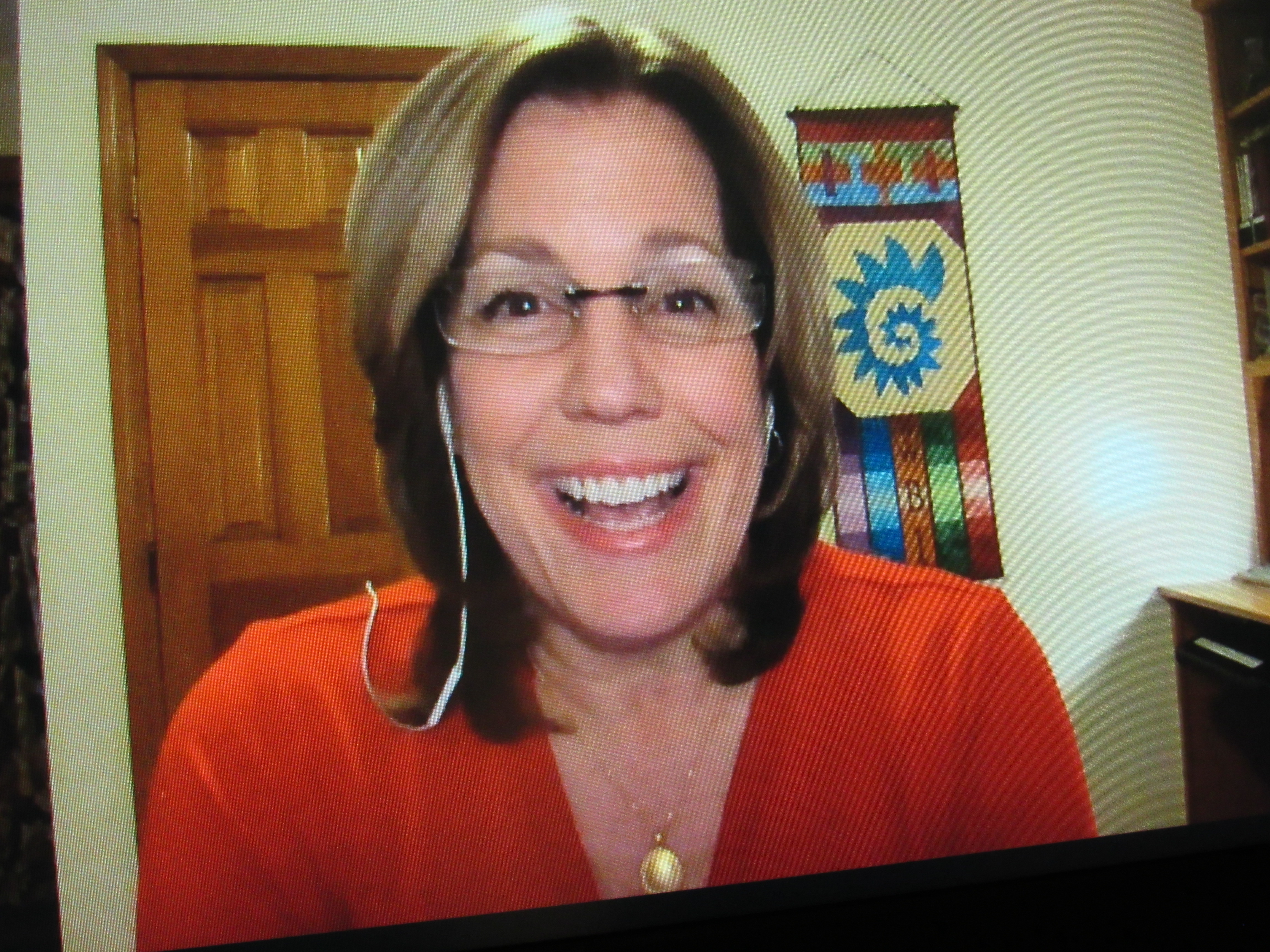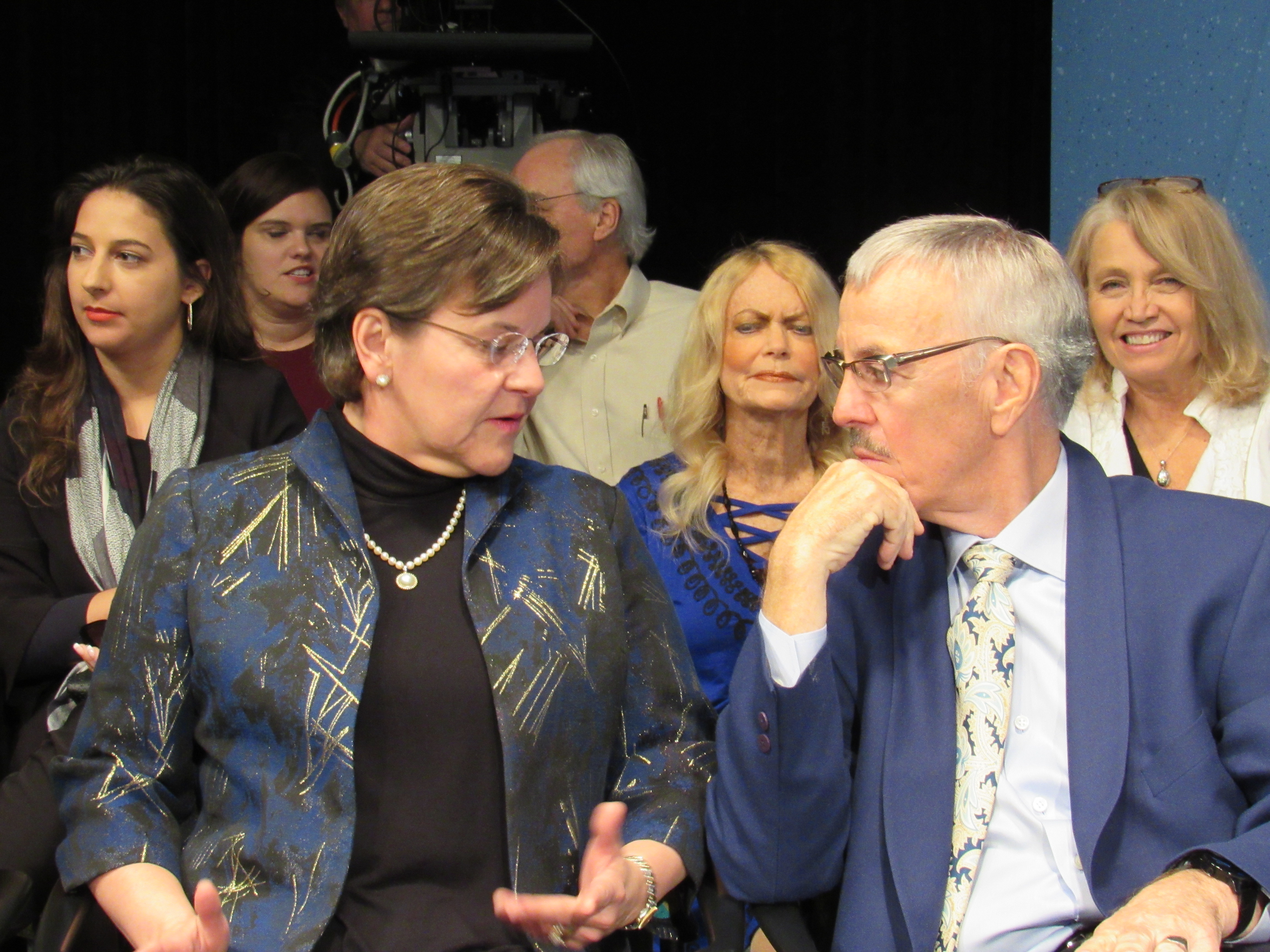
Left to Right: Deborah K. Heisz, Niki McCuistion, Dennis McCuistion, and Michelle Kinder
This is the second part of a two part series on Positive Psychology, and on this program, you’ll see how to apply its concepts to create true happiness and meaning in your life. Positive psychology, “the scientific study of optimal human functioning” was officially launched in 1998, by Martin Seligman, Ph.D., then President of the American Psychological Association.
Neuroscience has shown that happiness is the precursor to success. Yet, “conventional wisdom holds that if we work hard we will be more successful, and if we are more successful, then we’ll be happy”. (Source: Shawn Achor)

Megan McDonough
Happiness has become a what if game: get the dream job, then we’ll be happy, or the raise, or the new house or car or … Studies show that happiness and optimism actually fuel performance and achievement, so cultivating happiness can actually help us be more motivated, efficient, productive, resilient, and creative – which in turn drives performance upward.
Joining host Dennis McCuistion to talk about how to have more happiness in your life and how education is using the principles of well-being in the classroom, for adults and young people, are key experts in the field of positive psychology and education:
- Deborah K. Heisz, CEO – Co-Founder of Live Happy and Executive Board member of IPEN, International Positive Education Network
- Michelle Kinder – Executive Director of the Momentous Institute which has been transforming kids’ lives since 1920. “They focus on building and repairing social emotional health – developing kids who become self-regulated, good communicators, problem-solvers, empathetic, grateful, gritty and optimistic”
- Megan McDonough, CEO – Whole Being Institute, co-founded with Tal Ben Shahar, PhD who taught two of the largest classes in Harvard University’s history, Positive Psychology and The Psychology of Leadership. The Whole-Being Institute is an educational organization focusing on research-based courses that help people live life to its fullest-spiritually, physically, intellectually, relationally, and emotionally (SPIRE).

Left to Right: Candace Fitzpatrick, Michael Cofield, PhD
Our experts tell us how to live a well lived life, how to have more satisfaction in our lives and how to engage our strengths. With depression rates at an all-time high, with suicide rates among teens and young adults having tripled since the 1940’s, finding meaning in little things, finding purpose in everyday life and teaching this to our kids is critical.
The concepts and principles of well-being are not often taught in schools, yet research shows social- emotional wellbeing works. There is a direct link between empathy and academic performance. The capacity to understand and manage your emotions, your reactions and relationships are part of this model.
A Loyola study pointed out that if social/ emotional health and academics are working together, students’ performance is 11 points higher on academic challenges. By the way, 90% of high performers are also high in emotional intelligence.
Join us to learn how to worry less and live happier, more fulfilling lives.
***
2423




